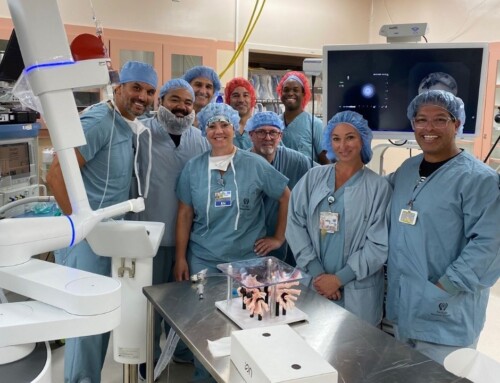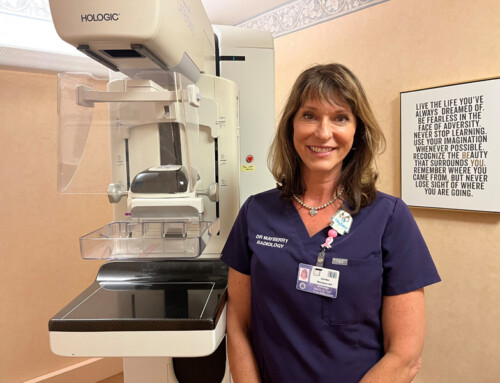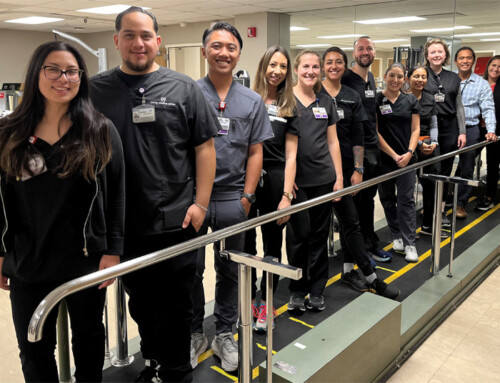 When you reach the age of 50, doctors will begin recommending regular colorectal cancer screening tests, to help reduce your chances of falling victim to this dangerous disease. As you age, you may feel overwhelmed by the number and variety of screenings recommended for your health, but there’s good reason for these procedures.
When you reach the age of 50, doctors will begin recommending regular colorectal cancer screening tests, to help reduce your chances of falling victim to this dangerous disease. As you age, you may feel overwhelmed by the number and variety of screenings recommended for your health, but there’s good reason for these procedures.
Screening is one of the most powerful weapons we have in the fight against cancer. When caught early, colorectal cancer — like many other cancers — is much easier to treat and recover from. Even while a cancer screening could potentially save your life, many people remain reluctant to schedule an appointment because they’re unsure of what the process entails.
Don’t worry — it’s probably not as scary as you’ve been imagining in your mind.
Let’s take a closer look at what happens during a colorectal cancer screening, so you’ll know what to expect when the time comes to make your first appointment.
What is Colorectal Cancer Screening?
Screening is simply the process of searching for the signs of cancer in people who aren’t suffering from any obvious symptoms. Besides skin cancer, colorectal cancer is the third most common cancer in both men and women across the United States — which is why these regular tests are so important. Your doctor will screen you to look for signs of cancer that would be too small to notice in your day to day life.
For instance, colorectal cancer frequently develops from precancerous polyps in the rectum or colon. Screening tests can pinpoint these precancerous polyps, allowing surgeons to remove them before they turn into cancer. Though there are many screening tests available, most fall into one of two categories:
- Tests that look for cancer: A fecal occult blood test (FOBT) or a stool test is designed to check the feces for evidence of cancer. These are minimally invasive, but may not be able to find polyps in the early stages.
- Tests that look for polyps and cancer: These tests include colonoscopies and double-contrast barium enemas, and are designed to examine the structure of the colon for abnormalities. Surgeons and doctors can remove polyps found with these tests while the cancer is still in its earliest stages and easiest to treat.
Common Screening Procedures
Your own experience with colorectal cancer screening will depend on the kind of test you get. Some tests, like FOBT screening, are minimally invasive and cause little to no discomfort. Others are a little more uncomfortable. The important thing to remember is that these tests truly are lifesavers — when you think about the cost of a few moments of discomfort compared to the reward of a long and healthy life, it’s more than worth it. Usually, people build up anxiety in their minds and find out the tests aren’t nearly as bad as they imagined. Even the ones that make you cringe to think about will be over quickly, and you’ll be on your way home before you know it.
Common screening procedures include:
- Fecal Occult Blood Tests (FOBT tests): People who have bowel cancer sometimes have small, unnoticeable traces of blood in their stools. The FOBT test looks through the stool for miniscule signs of blood; generally, this just requires bringing a small stool sample into your doctor, who can send it to a lab for testing. A positive test may indicate the presence of polyps or cancer. Because the presence of polyps and cancers doesn’t cause bleed consistently, several samples are needed for tests, often on a yearly basis. Studies indicate that regular guaiac FOBT tests can reduce the number of deaths caused by colorectal cancer by up to 33%.
- Sigmoidoscopy: This procedure uses a long, thin, and illuminated tube to search the colon and rectum for polyps and other abnormalities. Doctors can remove polyps during a sigmoidoscopy, but they can’t examine the upper portion of the colon. If polyps are discovered, doctors will usually recommend a full colonoscopy. You should have a flexible sigmoidoscopy test at least once every five years. Research shows that people who have regular sigmoidoscopy screenings see up to 70% lower risk of death from colorectal cancer.
- Colonoscopy: A colonoscopy is one of the most well-known colorectal cancer screening tests. This procedure uses a flexible tube (similar to that of a sigmoidoscopy) while you are sedated, allowing your doctor to examine your full colon and rectum. During the procedure, biopsies can remove polyps for examination. Studies have found that colonoscopies can reduce the chances of death from colorectal cancer by up to 60%. Most patients should get a colonoscopy once every ten years.
- Double-contrast Barium Enemas: If you’re unable to have a colonoscopy for any reason, a barium enema may be the next best thing. It helps your rectum and colon to stand out on x-rays, so your doctor can get a closer look at what’s going on inside. This test generally takes 45 minutes or less, and doesn’t require sedation. If your doctor sees anything suspicious in the resulting x-ray, you will likely schedule a more invasive test to examine further.
How Effective Is Colorectal Cancer Screening?
Medical organizations across the world agree that regular screening after age 50 (or earlier, depending on your medical history) is crucial to preventing colorectal cancer. The Preventative Services Task Force in the United States suggests that adults between the age of 50 and 75 should have regular screening tests. You may need more frequent testing if you have a family history of cancer, or genetic syndromes such as familial adenomatous polyposis.
Remember, you don’t just have to screen and wait for cancer to show up! You can work to lower your risk of developing cancer, by exercising regularly, following a healthy diet, and refraining from indulging in foods, drugs, and activities that are associated with cancer risk.
Colorectal cancer, like any disease, is always easier to fight in the earlier stages. It can take up to fifteen years for a polyp to develop into cancer — meaning your regular screenings may prevent colorectal cancer entirely, by removing polyps well before they worsen into a dangerous disease.
No matter how anxious you feel at the idea of a colonoscopy or a sigmoidoscopy, skipping these procedures is not worth risking your health. One hour of discomfort could equal ten or fifteen more years to spend with your loved ones. Finding an issue early gives you more options for treatment, and less risk of uncomfortable symptoms.





